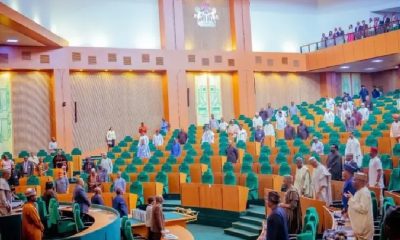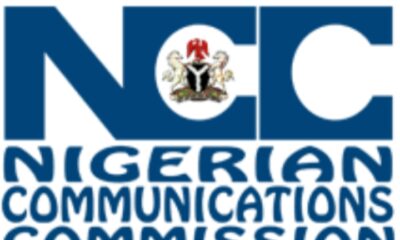Opinion
Rumblings over deactivated SIM cards

> By Sonny Aragba-Akpore
The Nigerian Communications Commission(NCC) regulations on inactive Subscriber Identification Module(SIM) card stipulates that any SIM card that has not had any form of economic activity within 180 days should be deactivated and reassigned by the Mobile Network Operators (MNOs).
And this may have foreclosed any form of grumblings if we understood what the regulations meant.
> We should ordinarily absolve the commission from any harm or errors of the deactivation of 42 million subscribers by this understanding.
> However some Nigerians think the NCC may have erred in its judgment and so must be liable.
Some even think,the commission should unbar the cards with apologies to the beleaguered subscribers.
> But did the NCC actually over step its bounds or contradict itself when it says its mandate is to protect all consumers yet deactivated 42 million subscribers?
> A former Kaduna State Senator Shehu Sani has his observations about the NCC action especially as he compared the Commission,s position vis a vis those on bandits whose lines still ring despite NCC,s manifest deactivation of SIMcards not linked to National Identity Numbers(NIN).
The outspoken Senator tweeted recently “the NCC and the Telecom operators know how to quickly block SIM cards;the ones they are yet to know how to quickly block are those ones used by Bandits to collect ransom.”
Some weeks ago, despite the presence of military personnel and police patrols, two teenage sisters, aged 14 and 16, were kidnapped by gunmen in the Guita community of Chikakore, located in Kubwa, Bwari Area Council of the Federal Capital Territory, Abuja and N30 million was required for the safe return of the kidnapped girls.
> And the Senator thinks,the NCC should go beyond deactivating SIM cards of those 42 million ‘innocent Nigerians ‘.
> Senator Sani is not alone.
Socio-Economic Rights and Accountability Project (SERAP) has urged Dr. Aminu Maida, the Chief Executive Officer of the Nigerian Communications Commission (NCC) “to immediately revoke the apparently unlawful directive to network providers to bar the phone lines of millions of Nigerians who have linked their SIM cards to their National Identification Numbers (NINs).”
SERAP also urged him to “restore the phone lines of these Nigerians, and to urgently establish a mechanism for effective consultation to provide Nigerians who are yet to link their SIM cards to their NINs with the appropriate support and infrastructure and adequate time and opportunity to do so.”
The Commission had recently ordered telecommunications companies to bar the phone lines of millions of citizens including those who allegedly “did not submit a good NIN or didn’t get a cleared or verified NIN by February 28.”
SERAP said, “No agency has the right to strip the citizens of their basic constitutional rights under the guise of failing to properly link their SIM cards with their NINs or failing to do so timeously.”
> SERAP said, “No agency has the right to strip the citizens of their basic constitutional rights under the guise of failing to properly link their SIM cards with their NINs or failing to do so timeously.”
> SERAP, in a letter it wrote to the NCC stated that “the blocking of phone lines of Nigerians must only be a last resort measure, and strictly in line with the Nigerian Constitution 1999 [as amended], international human rights and due process safeguards.”
The letter, read in part: “The arbitrary barring of people’s phone lines is never a proportionate measure as it imposes disastrous consequences and severely hinders the effective enjoyment of economic, social, and cultural rights, as well as civil and political rights.”
“Blanket measures of barring the phone lines of millions of Nigerians are inconsistent and incompatible with the Nigerian Constitution and human rights treaties to which the country is a state party.”
> “We would be grateful if the recommended measures are taken within 7 days of the receipt and/or publication of this letter. If we have not heard from you by then, SERAP shall consider appropriate legal actions to compel the NCC to comply with our request in the public interest.”
The NCC guidelines, titled, ‘Quality of Service Business Rules’, stipulate the minimum quality and standards of service, associated measurements, and key performance indicators for measuring the quality of service.
Per the guidelines, if a subscriber remains inactive for an additional six months, there is a possibility of losing their number, unless there is a network-related issue preventing the activation of the Registered Glove Enclave (RGE).
> “A subscriber’s line may be deactivated if it has not been used, within six months, for a Revenue Generating Event (RGE), and if the situation persists for another six months, the subscriber may lose their number, except for a network-related fault inhibiting an RGE,” the guidelines stipulated.
While this remains a big subject as it relates to inactive phone numbers in Nigeria, following the arrest of one Anthony Okolie, a Delta State-based trader, by the Department of State Services (DSS), for using a SIM previously owned by Hanan Buhari, the president’s daughter,the NCC has said there was nothing wrong in recycling SIM cards already deactivated
“Based on the new guidelines, the NCC said that telcos have the authority to reassign dormant SIM cards without recourse to the previous owners, as long as the inactivity falls within the stipulated period of six months@
> according to analysts.
> SERAP thinks “the arbitrary directive and the barring of the phone lines are extreme measures which must meet the strict legal requirements of legality, necessity and proportionality.”
“The NCC has also apparently failed to conduct an impact assessment of these extreme measures in order to avoid their arbitrary or excessive effects. These extreme measures go against the regulatory objectives of the Nigerian Communications Act and violate Nigerians’ fundamental human rights.”
“The NCC has clearly failed to abide by the Nigerian Constitution, human rights standards, democratic processes, the rule of law and due process safeguards.”
> “There is no legal justification for the arbitrary barring of phone lines of millions of Nigerians, especially those who have linked their SIM cards with their NINs.”
“The NCC has a direct responsibility to respect the rights to freedom of expression, information and privacy and to take effective measures to protect these fundamental human rights against attacks by third parties such as network providers.”
Chief Adeolu Ogunbanjo, President of the National Association of Telecoms Subscribers has stated that the group will seek redress in court
> soon if the SIM card blockade deadline is not extended.
> Ogunbanjo also confirmed ALTON’s position on the increased number of deactivated telephone numbers, saying the number of barred subscribers was so large that millions of subscribers are now in limbo.
Urging the NCC to consider the plight of telecoms consumers, and grant a 31-day extension for the exercise, he stated: “We have appealed to the Nigerian Communications Commission to extend the deadline till March 31.
> “But if this is not done, we will observe the situation for the next three days, that is Monday to Wednesday, and if this is not granted, we will have to file a case in court on Thursday.”
Ogunbanjo further said: “We have, and still appealing that this deadline be extended. We understand their position concerning security issues but a 31-day extension would not harm anyone and that is why we didn’t ask for three months.
“The NCC boss should please give us this gift as a resumption gift and not punish subscribers.”
The Nigerian gt had in December 2020 instructed residents and mobile users to link their SIM cards to their National Identity Number (NIN) as part of efforts to curb the rising security issues in the country.
> In fact, the NCC claimed that the SIM-NIN linkage frustrated the efforts of terrorists in Nigeria’s North East.
> Aside from Nigeria, other African countries are deploying SIM registration as a strategy to curb several vices, including cyber crimes.
> Not too long ago , Ghana’s Ministry for Communications announced that to ensure digital security, all SIM cards which have not been fully registered and linked with the Ghana Card will be blocked from the end of October 2022.
> A five-year jail term was also prescribed for vendors that are selling pre-registered SIM cards. The ministry disclosed that a total of 19 million SIM Cards were fully registered—representing 45% of the total SIM cards issued in Ghana.
In Kenya, the Communications Authority of Kenya blocked an undisclosed number of SIM cards in a move meant to curb illegal activities perpetrated by fraudsters with unregistered lines following its Saturday, October 15, 2022 deadline.
> Although this precaution is relevant for cyber protection, the aforementioned numbers show popular unwillingness towards SIM registrations, experts attribute this to a lack of trust in government authorities considering the violation of human rights on the continent.
> “Even if people are not actually being surveilled by the government, the fact that people may fear they are being tracked has a chilling effect on innocent and ordinary behaviour, including what information people look up on the Internet, who they contact, and how they express themselves,” Privacy International a UK-based data protection charity, said in a statement. “Journalists and human rights defenders may feel it is unsafe to communicate with confidential sources.”
African countries with mandatory SIM registration laws include
> Algeria, Angola, Benin, Botswana, Burkina Faso, Burundi, Cameroon, Central African Republic, Chad, Congo, Côte d’Ivoire, Democratic Republic of Congo, Egypt, Equatorial Guinea, Eritrea, Ethiopia, Gabon, Gambia, Ghana, Guinea, Guinea-Bissau, Kenya, Lesotho, Liberia, Libya, Madagascar, Malawi, Mali, Mauritania, Mauritius, Morocco, Mozambique, Niger, Nigeria, Rwanda, Sao Tome and Principe, Senegal, Seychelles, Sierra Leone, Somalia, South Africa, South Sudan, Sudan, Swaziland, Tanzania, Togo, Tunisia, Uganda, Zambia, and Zimbabwe.
> Amidst the widespread adoption of this law on the continent, critics have challenged the strategy especially because it has not adequately curbed the challenges that it intends to tackle stating that the risks of SIM card registration, which outweigh any possible benefits.
> In South Africa, the Right2Know Campaign took telecom operators—MTN, Cell C and Telkom—on the transparency in handling data provided during SIM registrations. Pre-paid SIM cards are preferred by many mobile phone users.
According to GSMA, 73% of mobile subscriptions globally are pre-paid. In Africa, 94% of mobile subscriptions are pre-paid.
The deactivation of 42 million subscribers may have impacted negatively on Nigeria,s teledensity.
In August 2023, the teledensity stood at 115.63% but dropped to 102.97% in November 2023. This adjustment stems from the prediction by the Nigerian Population Commission (NPC), projecting Nigeria’s population at 216.7 million as at 2022, replacing the previously used projection of 2017 190 million population.
Teledensity refers to the number of telephone connections for every hundred individuals within a specific geographical area, usually a country or region. It is a measure used to assess the level of telecommunications penetration or usage within a population.
A higher teledensity indicates greater access to telecommunications services within a population, reflecting the level of communication infrastructure development and the extent of connectivity among individuals. It is also an important indicator used by policymakers, telecommunications companies, and analysts to evaluate the progress of telecommunications infrastructure deployment and assess the level of connectivity within a given area.
Opinion
Fate of Critical National Infrastructure protection

By Sonny Aragba-Akpore
On June 24,2024,President Bola Ahmed Tinubu signed an Executive Order for the protection of information and communications technology (ICT) equipment in order to build a robust economy.
Captioned DESIGNATION AND PROTECTION OF CRITICAL NATIONAL INFORMATION INFRASTRUCTURE ORDER, (CNII)2024, the order derives its power from Cybercrime Act of 2015.
Specifically, this is In exercise of the powers conferred on the President by section 3 of the Cybercrimes (Prohibition, Prevention, Etc.) Act, 2015 (as amended), and all other powers enabling him in that behalf.
“The objectives of this Order are to designate certain Information and Communications Technology systems (ICT), networks and infrastructure operating in Nigeria, as Critical National Information Infrastructure (CNII) , develop cohesive measures and strategies for the security and protection of CNII, and ensure their continued operation .
The order specifies adoption and proactive holistic approach in the identification, security and protection of CNIl; reduce to the barest minimum, incidences capable of damaging, disrupting, or interfering with the operation, functionality, or integrity of CNII .
The order is essentially to ensure the effective functioning of ICT systems, networks, and infrastructure, which are critical to driving national imperatives, economic development, national security and defense, public health and safety, and government operations.
It lists Computer systems, networks, and communication infrastructures acquired, installed, deployed, and operated in sectors of the Nigerian economy as in the Schedule to this Order as critical and are hereby designated as CNII.
But beautiful as the document is,its impact is yet to be felt.
Inspite of the good intentions thereto, not much has been done or heard in this regard as it appears the document appears confined to government archive as one of those policies that have good intentions but remain slow in implementation.
Strangely, nobody is even talking about it and industry players are worried.
As for the Cybercrime Act from where this order was derived, very little has come from there too except pockets of arrests and prosecution especially of persons who may have alleged to have carried out cyberstalking and others.
The CNII order requires strong implementation especially if we intend to build a resilient and robust economy and sustain and protect telecommunications infrastructure, grow the ICT sector to improve on the Gross Domestic Product (GDP) among others.
Not much has been heard or implemented since 2024 when the order was signed and it is worrisome that such a beautiful policy is allowed to rot away in the back waters of governance.
CNII refers to interconnected systems; networks that are indispensable for the functioning of the nation’s economy, security, public health, and general safety. These information infrastructures ensure seamless communication, data storage, and operational continuity in both private and public sectors.
Examples of CNII include telecommunications networks, financial systems, transportation management systems, national power grids, national identity management system among others.
Disruption to any of these systems could result in significant economic losses and distress.
Legal experts explain that Office of the National Security Adviser (ONSA )is tasked with leading efforts to protect CNII by collaborating with relevant stakeholders to establish a Trusted Information Sharing Network (TISN) that would encourage the exchange of information across various sectors of the Nigerian economy.
The Order also empowers the ONSA to conduct regular audits and inspections of CNII to ensure compliance with applicable laws, guidelines, and rules.
Additionally, the ONSA in collaboration with relevant CNII stakeholders is required to develop and implement a Critical National Information Infrastructure Protection Plan (CNIIPP) and other measures to prevent unauthorized access, theft, vandalism, destruction, and unlawful interference with the operation of CNII.
This is to minimize risks and reduce incidents that could disrupt or compromise the functionality of this CNII.
Pursuant to the Act, individuals who commit offences against CNII, specifically, unauthorized access, tampering, or interference with CNII, shall upon conviction be liable to imprisonment for up to 10 years. Where such acts result in grievous bodily harm to individuals, the imprisonment terms extend up to 15 years. In cases where such offences lead to the loss of life, offenders are liable to life imprisonment.
The designation of telecom infrastructure as a critical national infrastructure may not address the challenges of vandalism except the government displays the political will to enforce the Order.
The immediate past government had approved and also directed that necessary physical protective measures be put in place to safeguard telecommunications infrastructure deployed across the country.
The presidential directive, mandated Office of the National Security Adviser (ONSA), Defence Headquarters (DHQ), Nigeria Police Force (NPF), Department of State Services (DSS), and the Nigeria Security and Civil Defence Corps (NSCDC),to ensure protection of the infrastructure and were properly notified of the President’s directive and were expected to enforce same as directed.
But very little was done because this had no impact as vandalism of the infrastructure remained a daily occurrence across the country to date.
That is why this government should sum up the political will to implement this Executive Order, safeguard the infrastructure and fuel the economy.
Communications, Innovation and Digital Economy Minister, Bosun Tijani explained at the advent of the document that “the order is a significant step that would strengthen and protect investments in the ICT sector by reducing incidences capable of damaging the operations and functionality of the country’s technological systems, infrastructure, and networks.”
The Minister added that designating telecom infrastructure as CNII would help improve the quality of telecoms services, which has often been affected by disruption and intentional damage.
“This gazette now makes it an offence to wilfully damage assets such as telco towers/sites, switch stations, data centres, satellite infrastructure, submarine & fibre optic cables, transmission equipment, e-government platforms, databases among many others,” adding that government would continue to work to create an enabling and supportive environment and policies for the digital economy to thrive.
The Order identifies areas that are critical for protection as: power and energy sectors of the economy, water; information, communication, science and technology ;banking, finance and insurance ;health ;public administration; education ;defense and security transport; food and agriculture; safety and emergency services; industrial and manufacturing; and mines and steel.
The order states that the National Security Adviser (NSA) may, with the approval of the President, update the list of sectors in the Schedule to this Order, taking into consideration emerging technologies and platforms, in line with the Cybercrimes (Prohibition, Prevention, Etc.) Act (“the Act”), and the National Cybersecurity Policy and Strategy (“the Policy”).
And any update made pursuant to the listed areas shall be published in the Federal Gazette.
“The Office of the National Security Adviser (ONSA) shall, in collaboration with relevant CNII stakeholders, develop a comprehensive Critical National Information Infrastructure Protection Plan (CNIIPP) ; and guidelines, specifying minimum standards, rules, and procedures for the protection, preservation and general management of designated CNII,for the approval of the President.”
“The ONSA shall, in collaboration with relevant CNII stakeholders, establish a Trusted information Sharing Network (TISN), as a multidisciplinary framework, comprising owners and operators of CNII ;representatives from relevant Ministries, Departments, and Agencies of government (MDAs) ; and identified private sector organisations, to build and execute awareness campaigns on risks to CNII, share information and techniques required to assess and mitigate risks in a decentralised manner across sectors of the economy, and implement capacity building initiatives to strengthen and mainstream resilience and protection of the infrastructure and networks.”
Members and entities within the TISN shall collaborate and share information on threats and vulnerabilities, and develop strategies and solution to mitigate known and evolving risks.
How much of this has been implemented across board leaves us guessing.
Before the Presidential intervention,it has been a tale of woes by stakeholders in the Nigerian ICT sector who have been calling on the government to designate telecom infrastructure as a critical national infrastructure to address the challenges of persistent attacks on the infrastructure across the country.
In March 2024,the Operators reiterated the call as Nigeria suffered an internet outage due to damage to some fibre optic cables.
“In 2023 alone, MTN Nigeria suffered more than 6,000 cuts on its fiber cable. The operator relocated 2,500 kilometres of vulnerable fiber cables between 2022 and 2023, at a cost of more than N11bn —enough to build 870 kilometres of new fiber lines in areas without coverage.”
Early in August 2024 ,Chief Executive Officer of Airtel Nigeria, Carl Cruz, while speaking during an industry forum, said the telecom company had been recording an average of 1,000 cases of fibre cuts every month.
Opinion
Reflections of Victor Oluwafemi Walsh in development communication, policy innovation in Africa

Victor Walsh Oluwafemi is not your typical journalist. His work transcends traditional media, merging development consulting, storytelling, and policy education into a powerful vehicle for societal change. His office is a moving stage, sometimes a radio booth, other times a rural health centre or a muddy road where he films barefoot entrepreneurs solving real-world problems.Rooted in development consulting, Victor began his professional journey advising public sector organisations, NGOs, and donor agencies. His early work focused on training design and evaluation across education, health, and youth development sectors. These formative years granted him a systemic understanding of governance failures and community resilience. “It gave me a systems view of what works and, more importantly, what doesn’t,” he reflects.
Driven by a desire to fill the gaps he observed, Victor transitioned into development journalism. His mission: to amplify African voices and make policy accessible to everyday citizens. His analytical and people-centred writing has graced African and international platforms, covering corruption in extractive industries, governance and accountability, climate justice, rural livelihoods, trade, youth entrepreneurship, and tech innovation. “We need media that interrogates power but also celebrates innovation,” he says.
“That balance is vital for African development.”Expanding his reach, Victor ventured into documentary storytelling. His short films, including Leaders, Lies or Legacies, The Corporate Mavericks, and Beyond Gender Wars, have been praised for their sharp insights and compelling narratives. His work does not merely tell stories; it sparks conversations about leadership, gender equity, and innovation in African societies.Podcasting offered another avenue for citizen engagement. Through programs like Bala Blu Republic and The Policy Pod, Victor demystifies complex governance and policy issues for ordinary citizens. His approach builds vital access points for populations often excluded from elite discussions, blending satire, education, and activism.Victor’s influence extends into policymaking circles. He founded The Policy Pod, a platform that produces plain-language breakdowns of intricate policy frameworks. His policy briefs covering urban poverty, adaptive leadership, and youth-focused social policies inform ministries, civil society organisations, and international donor agencies.Recognising the growing importance of Environmental, Social, and Governance (ESG) accountability, Victor launched Souq Nexus, an ESG storytelling initiative. He helps corporations report real community impacts and push beyond performative sustainability narratives. “ESG shouldn’t be a PR tool,” he insists. “It should be about transparency, justice, and sustainability.”Victor’s contributions are not confined to the media alone. As an Executive Director and Senior Trainer at the Africa Development Studies Centre (ADSC), he develops and delivers capacity-building programs for senior government officials, NGO leaders, and private sector executives.
His training in strategic communication, systems thinking, emotional intelligence, and adaptive leadership is reshaping how public policies are designed and implemented.Victor’s expertise has made him a sought-after consultant for numerous Nigeria’s National Assembly committees. His policy consultancy work spans education reform, health system strengthening, youth entrepreneurship, and climate adaptation strategies. His insights have influenced legislative reviews, policy drafts, and national development blueprints.His active role as a planning committee member and event contributor for international conferences further cements his leadership. From moderating panels at events like ICSBTIRM 2022 to shaping discussions at ICSPDEG 2021 and ICETTDM 2027, Victor has consistently bridged policy, academia, and community realities.Victor is also a media entrepreneur. He founded Isle 104.9 FM, Nigeria’s first business-focused development radio station, which broadcasts on good governance, entrepreneurship, civic education, public health, and environmental sustainability. “Capital must be conscientious,” he notes. We must fund what we believe in, responsible media, decent jobs, short films and movies, and local content.”Parallel to Isle FM, he launched Souq News TV, a digital platform covering African markets, innovation, and grassroots enterprises. Souq News TV fills a critical gap, providing sharp, locally anchored analysis of Africa’s economic and social development trends. “We created Souq News TV because there was a vacuum—mainstream media and global financial outlets were ignoring African SMEs, informal economies, and local innovators,” Victor explains.Beyond media ownership, Victor strategically invests in sectors that align with his development vision. He backs social enterprises, start-ups, and inclusive finance initiatives, advocating for responsible economic growth and equity in Nigeria.Victor’s philosophy is deeply pragmatic: storytelling must inspire and transform systems. His work exemplifies a shift from passive hope to active proof, creating platforms, building access, and ensuring that African voices are central to narratives about the continent’s future.”We don’t need more saviours,” he concludes. “We need more informed citizens and responsive systems. That’s what drives my work.”Through relentless innovation, an expansive media footprint, policy influence, and investment in social infrastructure, Victor Walsh Oluwafemi is redefining development communication for a new African century—one where citizens are informed, systems are responsive, and stories ignite tangible change.Orovwuje is a Lagos-based international development consultant and public affairs analyst who writes on policy, governance, migration, and inclusive development in Africa.
Opinion
THOUGHTS ON CONSTITUENTS DEVELOPMENT IN OBIO-AKPOR

BY BOLAJI AFOLABI
Democracy, generally described as the best form of government is anchored on three planks; the executive, legislature, and judiciary. In any nation that practices democratic government, each of these arms exists, functions, and operates independently but they relate with one and another; where necessary for the general well-being of the society. Indeed, the legislature can be described as the fulcrum of democracy. Without it, there is no democratic governance. In Nigeria, the legislature is saddled with the responsibilities of Law making; Oversight, and Representation. In the constitution (as amended), Section 4 gives the legislature the power to make laws for peace, order, and good government of the Federation or any part thereof. Sections 88 and 89 empowers the legislature to ensure that there is transparency, accountability, and good governance in Nigeria. Though not explicitly stated, Sections 51, 66, and 4 collectively imply that legislators are elected to serve the interests of their constituents; addressing the needs of their people through constituency representation.
Somehow, the majority of people who are constituents of legislators do not bother about their law making, and oversight functions. The focus seems to be constituency representation. On a regular basis, with audacious demands, and ferocious requests, legislators are bombarded by their constituents. It has gone terribly bad that many people are either entirely oblivious of the main duties of legislators or deliberately play “deaf and dumb.” Legislators, are mostly rated by “what they bring back home” by way of constituents empowerment and constituency development. Law making and oversight; which are their main duties, is gradually edged to the backwaters. Sadly, the wrong characterisation of the legislature is on a free fall. Given the vagaries of national challenges including monstrous hunger; pervasive hardship; disabling unemployment; accentuating insecurity; corrosive poverty, and more the legislators are at the receiving ends of their constituents. Oftentimes harassed, blackmailed, and subjected to different theatrics and tantrums, some legislators stretch out of their “terms of reference” to be free from barrages of attacks, vilification, and insults hauled by some constituents.
December, being the last month in every year is reputed for festivities and celebrations. Across the country, days of the month witness various merriment and programmes. From weddings to house warming and burial ceremonies and numerous other events, there are always something or the other that make people coalesce at centres and venues. Politicians, particularly elected are not left out. Leveraging on the mass-movement of people from the urban centres to rural communities, politicians organize one thing or the other that will benefit their constituents and constituencies. During this period, particularly in the Southern zones and Middle Belt, constituents regal in enthusiasm and ecstasy as they warmly jubilate over the commissioning of projects, distribution of materials, and provision of services from legislators. Commonly described as dividends of democracy, for many constituents it is seen as visible proof that they are being represented effectively by their respective legislators.
In most cases, the thrills, frills, and fun literally dry out as the yuletide season grinds to a halt. For many people, including legislators the first three months of the new year are times for reality check. Many explore the first quarter as months for recovery, recuperating, and rearranging themselves. Though many constituents may pretend to be oblivious of this “home-truth” but few reasonable ones do not expect interventions from their legislators anytime soon. Sadly, legislators, being the “government” that constituents can easily relate with, are daily bombarded by tonnes of requests. Every attempt to explain their inadequacies are roundly rejected by many people. Perhaps, one may not blame Nigerians. Overtime, the ostentatious, expensive, and expansive lifestyles of some legislators have led to collateral damage for few others.
Without prodding and pressures, the reverse is the case in the Obio-Akpor federal constituency. Literally, the rains have continued to fall on the constituents. Since the first few days of the year up till now, there has been a deluge of programmes and projects; facilitated by their representative, Chinda Kingsley geared towards communal development and the personal growth of constituents. According to verifiable records, Chinda, who has been impacting constituents since 2011, continued in the same positive trajectory. Recall that from mid-2023, many people from across different communities in the 17 Wards of the constituency have benefitted from various initiatives. These non-partisan, all-inclusive, and fair-to-all intervention programmes, with special focus on education, health, agriculture, skills development, and more have largely impacted the people. Mr. Ephraim Nedum, a serial entrepreneur confessed that, “initially, I didn’t believe all the talks about intervention programmes in the first quarter of the year. After proper checks, and confirmation from some beneficiaries within my neighborhood, I will like to commend Chinda for keeping to his word. He is a man of honour and integrity.”
Conscious of the imperatives of education to the totality of human existence, particularly in a cosmopolitan setting like Obio-Akpor, an adult education scheme was initiated. For weeks, both illiterate and semi-literate constituents; including elderly men and women, and others were exposed to the basic rudiments of learning. From testimonies, the programme had far-reaching impacts on the beneficiaries. Mr. Godwin Ibe, a trader explained, “though I didn’t continue my education after junior secondary school, the programme was very useful and timely for me. I have decided to write WAEC, and NECO next year.” To improve capacity building, about 150 teachers have been enrolled for the University of Buckingham (UOB) International Diploma of Education programme. One of the beneficiaries, Mr. Darlington Goodness admitted that, “this is a laudable initiative, as one is going to have global certification at the end of the programme. The benefits are immeasurable.” In continuation of the distribution of desks, teachers tables, and other equipment, Comprehensive Secondary School, Rumuokwurusi, Community Boys Secondary School, Elelenwo, and other secondary schools benefitted from the Phase 3 of the programme which ended a few weeks back.
Cognizant that the growth of the informal and semi-formal sectors are necessary for the promotion of trade and commerce, as well as realistic economic growth in the constituency, and Rivers, diverse training programmes were facilitated. Many people, including indigenes, residents, and non-indigenes participated in various capacity building initiatives in agriculture, transportation, welding, and other vocations. Many of whom got buses, working materials, start-up packs, and other empowerment packages. Mr. Nurudeen Ambali a commercial bus driver was surprised that, “non-indigenes were not only included in the training programme but few also benefitted from the buses.” Mallam Jubril Mohammed, Hausa community leader, affirmed that, “in my over three decades in Rivers, this is the first time that our people are benefitting largely from programmes initiated by any lawmaker.” Comrade Destiny Fynecountry, a Youth Leader emphasized that, “the AgriBusiness capacity building programme was an eye-opener, and life-changing experience for youths. We now know the extensive value of chain opportunities and possibilities in the sector.” Corroborating, Ms. Magdalene Wakama reiterated that, “for many of us, we have started our respective journeys towards being self-reliant, and emerging as agriculture entrepreneurs.”
Mindful about the glaring healthcare deficits in various communities, and the challenges the government is facing towards addressing this all-important sector, Chinda facilitated a three-day free medical outreach. The programme was not restricted to constituents but also included people from contiguous communities. Elderly men and women, nursing mothers, youths, and others had interactions, and treatments on various health issues which were anchored by quality, and experienced medical professionals. Mr. Valentine Dominic, applauded the initiative, “though I am not from the PDP but Chinda should be commended for insisting that everybody benefitted from the medical outreach. Fact is, I know many people who are members or supporters of rival political parties that participated.” For Elder Kevin Nedum, “I am very happy that, in my lifetime I am benefitting from a medical outreach. The ease with which I was invited to the programme, examined by doctors, and given recommended glasses shows that good things can be done if the right people are elected to offices.” Madam Philomena Emele declared that, “with proper checks, and provision of medications, I am experiencing improvement in the health challenges that I had before now.”
Somehow, there is a unanimity of opinion within the Obio-Akpor federal constituency, and across neighbouring communities that Chinda has done well. Similar endorsements are echoed in some other areas across the state. That these commendations are broad-based; across party lines, ethnicity, religion, and different persuasion speaks volumes about the all-embracing impacts of these interventionist programmes. Chief Chidera Obiozor, a community leader stressed that, “it is heart warming that he has given life to his campaign promises which was anchored on ‘I Win, You Win.’ One hopes that he will continue with this, and more.”
For Mrs. Queen Chiazom, an opposition party women leader, asserted that, “the various programmes are adding value to the people of the constituency, irrespective of party affiliation. I was happy when I heard that Chinda always insists that these programmes are for everybody. This is the type of leader that people desire.” Indeed, Rivers has been fortunate with the calibre of legislators they have at the National Assembly. From available records, their commitment to constituency development, and constituents empowerment has been encouraging. Amidst the positive narratives, and commendations, people are hopeful that Chinda (and other legislators) will keep the rain of performances falling.
* BOLAJI AFOLABI, a Development Communications specialist was with the Office of Public Affairs, The Presidency, Abuja.
-

 News21 hours ago
News21 hours agoJust in: Popular Nigerian billionaire, E-Money nabbed by EFCC
-

 News22 hours ago
News22 hours agoKing Sunny Ade’s family opens up over his whereabouts after daughter’s alarm
-

 Politics18 hours ago
Politics18 hours agoJust in: Ex- Gov Okowa accepts betraying Southern Nigeria, laments running with Atiku
-

 Metro6 hours ago
Metro6 hours agoGunmen storm University of Benin teaching hospital, kill doctor
-

 News23 hours ago
News23 hours agoEx-DIG,Olofu debunks online newspaper report, says ” I retired from NPF meritously after 35yrs service
-

 News18 hours ago
News18 hours agoBoko Haram Kill Mourners, Kidnap Others In Borno
-

 Metro6 hours ago
Metro6 hours agoFCTA destroys 601 motorbikes over violations
-

 News6 hours ago
News6 hours agoJust in: FG declares tomorrow public holiday
















